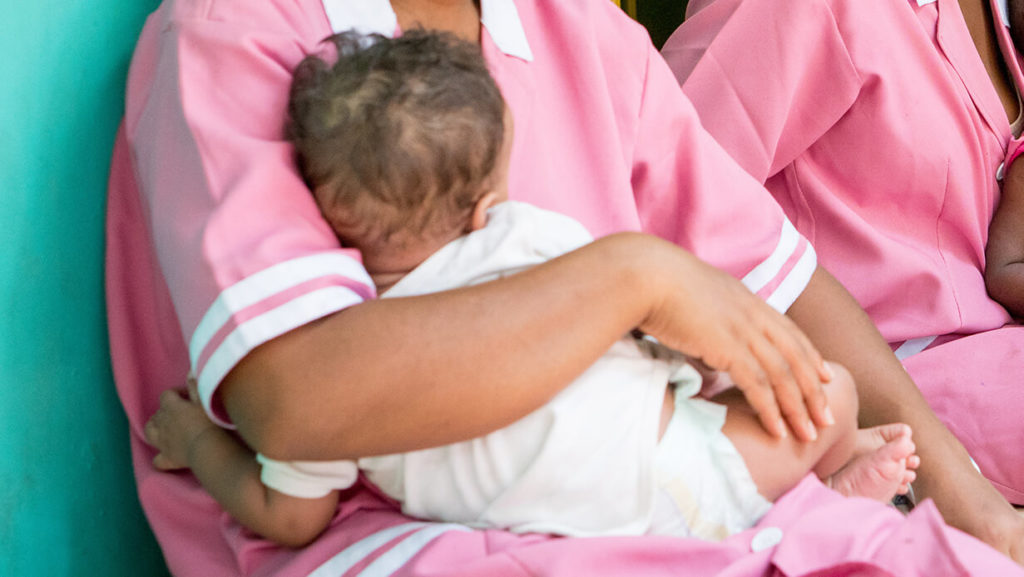
Can a child with HIV spread HIV from a cut or scrape?*
HIV can only be transmitted through blood-to-blood contact, sexual contact, breastmilk, and IV drug use. HIV is a weak virus outside of the body and when it is exposed to air it dies. For blood-to-blood transmission to occur from a cut or scrape, the uninfected person would have to have an open wound where the infected person’s blood can make immediate contact. It would be extremely difficult, if not impossible, to pass the virus through a cut or scrape, especially if that child’s HIV is managed and their viral load is undetectable. For parents worried about transmission of HIV to other family members through cuts and scrapes, it’s important to know that there have been zero documented cases of household transmissions through cuts and scrapes. As a matter of hygiene, parents should practice universal precautions when in contact with blood or bodily fluids, regardless of HIV status.
Will a child with HIV get gravely sick from a cold?
It’s true that HIV is a virus that attacks the immune system but the treatment available for HIV often reduces levels of infection to undetectable levels. This makes HIV a chronic but manageable condition that does not affect a child’s life span or quality of life. In other words, a cold will usually be just a cold. If concerns persist, there are precautions parents can take to help their child’s immune system. For example, frequent hand washing, vitamins, exercise, wearing masks, and social distancing when others are sick, etc.
How often do children with HIV require doctor visits and how much does HIV treatment cost?
Visits to a pediatric infectious disease specialist typically take place every 3-4 months for most kids living with HIV. Each visit requires lab work. At home, antiretroviral medications are required 1-2 times per day in the form of a pill or liquid. HIV treatment (including medications) are usually covered well by health insurance. If not, there are medication programs available to help reduce the cost if needed.
Can HIV medications not work, or can children become resistant to them?
If a child is not reacting as desired to a prescribed medication, there are alternatives available to try. There are different types of HIV, and some types respond better to some medications than others. There are 5 categories of HIV medications and around 25 different medications in total so it may take some time to find the ideal medication for each child. Drug resistance is a concern for any medication and usually occurs when the medication is not taken as prescribed. Missed doses or frequent medication changes can lead to drug resistance so as with any prescription, it’s important that kids who are HIV+ take their medication regularly.
Do children with HIV suffer side effects from HIV medications?
Like any medication, side effects depend on the individual. Some children will respond better to some medications than others. Luckily, there are 5 categories of HIV medications and 25 different medications in total so if one causes side effects, the child’s doctor will likely prescribe another. Finding the right treatment for each child may take time but the quarterly visits to a pediatric infectious disease specialist facilitates monitoring and evaluation of side effects.
Long-term prognosis: Can a child who is HIV+ lead a normal life as they grow up?
With medication, people who have HIV can expect to have normal life span. A person with HIV can get married, have children, and have little to no chance of passing on the virus when taking appropriate precautions.
Do I have to disclose my child’s HIV status?
No! Your child’s HIV+ status is legally protected. You do not need to disclose your child’s HIV status to anyone—this includes your child’s school, sports team, dentist, and more.
Will adopting a child who has HIV complicate the legal aspects of adoption?
Bringing home a child who is HIV+ does not require any special immigration or legal considerations. Over a decade ago, the Department of Health and Human Services and the CDC removed HIV testing requirements for visa applicants and declared that if someone is HIV+, that person cannot be found ineligible for a visa on that basis. Therefore, children who have HIV can enter the US without special considerations based on their HIV status.
We hope this information will help your family decide what’s right for you. If you have any further questions about adopting a child with HIV or any other special need, please don’t hesitate to contact us at inquiry@allgodschildren.org.
*Please consult your medical provider for more information and specific local resources in your area.













